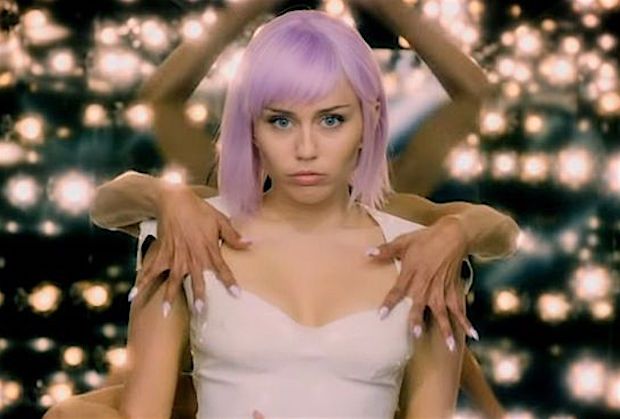By Dustin Rowles | Streaming | June 6, 2019

Netflix’s Black Mirror is a 21st Century The Twilight Zone that tackles a terrifying/creepy but realistic future possibility and extrapolates from there in an effort to warn us about the unintended consequences of technology. When creator Charlie Brooker most succeeds, however, is when he can produce a story that’s more than just about the futuristic technology, but also about the human condition, about our inability to make real human connections in a social-media world, or our desire to use technology to retain some of those human connections, even after death of a loved one. In some ways, the technology itself is a sort of MacGuffin, a device used to tell a compelling or horrific or heartbreaking story.
In the three episodes of Netflix’s fifth season of Black Mirror, Brooker builds stories that cannot be separated from the underlying technology, that can’t stand on their own. In two of the three, at least, the stories are lousy and the characters are flat, so the dangers and/or possibilities presented do not resonate. I’m honestly still struggling with what to make of “Striking Vipers,” the first episode, in which two estranged college friends (Anthony Mackie and Yahya Abdul-Mateen II) play a futuristic, VR version of Street Fighter. While in the virtual reality world, the two men can feel the sensations of being hit or kicked or punched, but they can also feel what it’s like to have sex with each other, an experience they end up becoming obsessed with to the exclusion of everything else in their lives. But they can’t figure out what it means: One guy uses a female avatar, and the other guy uses a male avatar, so does this mean they’re gay? Or is the sex so good because of their real-life emotional connection?
Heteronormative relationships is an interesting area to explore here, particularly given Anthony Mackie’s own beliefs about defined gender roles, but the episode doesn’t really break the surface to explore the boundaries surrounding romantic love, gender, and sexual orientation, although in Nicole Beharie’s character — she plays the wife of Mackie’s character — it does seem to suggest that virtual emotional affairs are the equivalent to real-life sexual flings. But the episode not only beats around the bush too much, it plods and repeats itself, and there’s never really any storytelling crescendo or a satisfying payoff.
The third episode, “Rachel, Jack and Ashley Too,” stars Miley Cyrus and it’s honestly not just the worst of the three, but one of the worst episodes ever of Black Mirror (and like the first two episodes, unnecessarily long). Miley Cyrus stars as Ashley O, a sort of Miley-like pop star who is being controlled by her aunt, hellbent on making Ashley O a global sensation even without the participation of Ashley O (it basically involves creating a digital version of Ashley O). A fan of Ashley O’s, Rachel, and Rachel’s sister, Jack, end up getting involved in the dispute between Ashley O and her aunt with the aid of an AI robot toy version of Ashley O that Rachel received for her birthday. It’s dumb and it doesn’t say a damn thing — it’s a schlocky adventure tale about two teenagers and a robot with a virtual human brain trying to stop the villainous aunt from exploiting Ashley O’s brain. It’s like a bad episode of Phineas and Ferb only more cartoonish.
I found myself liking the second episode, “Smithereens,” almost exclusively because of the presence and performance of Andrew Scott (the hot priest on Fleabag), who plays Chris, a rideshare driver who picks up an employee of a social media company called Smithereens and holds him hostage in an effort to talk to Billy Bauer (Topher Grace), the Zuckerberg of the company. It’s a thin story — the lesson of which is basically “Don’t text and drive” — but Scott is so compelling that the hide-the-ball trick the episode pulls almost works in spite of itself. I really wanted to know why Chris needed to speak to Billy Bauer, and even though the reason was ultimately anticlimactic, I still got to spend an hour and 15 minutes with Andrew Scott. There are worse things. I also liked that the episode was set in 2018 as if to remind viewers that the very real danger posed in the episode — the addictive nature of social media — is not a problem of the future, but of the present. It’s effective mostly as a well-acted PSA, although — again — it could have easily cut half an hour on its runtime, and honestly, it would’ve been a chore to watch with almost any other actor in the lead.
The three episodes combine, however, to make for a slight and overly long viewing experience. A couple of weeks ago, I suggested that the best episodes of Jordan Peele’s The Twilight Zone were no better than the worst episodes of Black Mirror, but I’m questioning that assessment after season five. The Twilight Zone doesn’t work in a post-Black Mirror world, but maybe Black Mirror doesn’t work in a post-Black Mirror world, either.